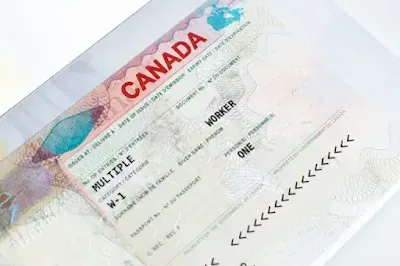How To Get Work Permit In Canada ?
- Determine the type of work permit needed
- Apply for the work permit
- Obtain a Labour Market Impact Assessment (LMIA)
- Submit a work permit application
- Pay the applicable fees and obtain necessary visas or permits
- Utilize resources for help with the process
The New Rules For Work Permit In Canada 2023
- Canada introducing new work permit rules and regulations in 2023
- Biometric technology to be introduced for foreign nationals
- New screening process for applicants including review of qualifications and language skills
- Incentives for foreign workers including renewable work permit and access to job search and training programs
- Measures to ensure fair treatment of foreign workers including minimum wage, overtime pay, and health and safety protections
- Aimed at ensuring safety and security of foreign workers and strengthening Canadian economy with skilled foreign workers
In 2023, Canada will be introducing new rules and regulations for its work permit system, in order to further ensure the safety and security of foreign nationals while they are working in the country. These new rules are being put in place to protect both the Canadian citizens and the foreign workers alike, by ensuring that those who are working in Canada are doing so legally and ethically.
The first major change to the work permit system is the introduction of biometric technology. This will allow foreign nationals to have their fingerprints or other biometric data taken upon arrival in Canada. This data will then be stored in a secure database and will be used to verify the identity of the foreign worker whenever they apply for a work permit. This will help to prevent fraud, as it will be easier for the government to keep track of who is coming into the country and who is leaving.
Another new regulation for work permits is the introduction of a new screening process. This screening process will involve a more thorough review of an applicant's background and qualifications, as well as an assessment of their language skills and any criminal history they may have. This will ensure that those who are coming to Canada to work have the skills and qualifications necessary to do their job safely and effectively.
In addition to the new rules, the government is also introducing a number of incentives for foreign workers. These incentives include a two-year renewable work permit, access to a number of job search programs, and access to job training programs. This will help to ensure that foreign workers are able to find work in Canada, and are able to get the skills and training they need to make a successful career in their new home.
Related : Where and How To Find Employement In Canada | 101 Guide
Finally, the government is also introducing a number of measures to ensure that foreign workers are treated fairly and equitably while they are working in Canada. These measures include the introduction of a minimum wage, the provision of overtime pay, and the provision of health and safety protections. This will ensure that foreign workers are treated with respect and are not taken advantage of while they are working in Canada.
These new rules and regulations for work permits in Canada are sure to make it easier for foreign nationals to work in the country legally and safely. They will also help to ensure that the Canadian economy is strengthened by having skilled and qualified foreign workers in the country. With these new rules in place, it is likely that Canada will continue to be a great place for foreign workers to live and work in the future.
In conclusion, it is possible to apply for a work permit in Canada, either as a Post Graduate Work Permit, an Open Work Permit, or a Closed Work Permit. You can also extend your existing work permit or change your visitor visa to a work permit. All of these applications must be done through Immigration, Refugees and Citizenship Canada (IRCC). It is important to have the right documentation to ensure a successful application.
